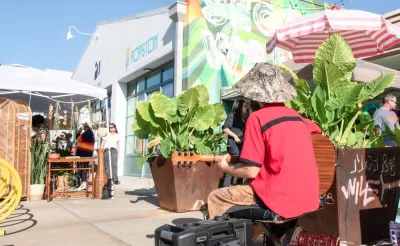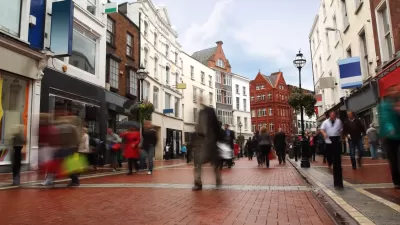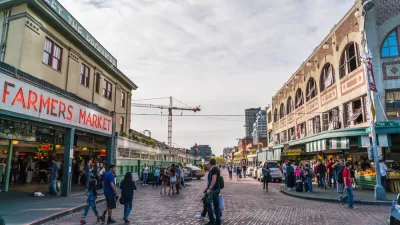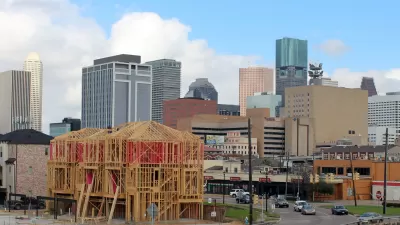The 17-acre Second Ward project has spurred both optimism for a more walkable city and concerns about displacement and gentrification.

A proposed Houston development could achieve some ambitious firsts for the historically sprawling city: “a pedestrian-friendly neighborhood of adaptive reuse buildings where low- and middle-income residents can live affordably, and where owning a car would be optional.”
As Marissa Luck explains in the Houston Chronicle, “Houston real estate firm Concept Neighborhood — a group of entrepreneurs that include some of founders of the Axelrad beer garden — previously unveiled plans to convert the former W-K-M warehouse complex in the East End into a mixed-use destination with hyperlocal businesses and walkable streets.” The 17-acre project will have up to 1,000 mixed-income housing units and 250,000 square feet of retail and office space, as well as a rails-to-trails conversion.
While the developers promise to “devise strategies for assisting small business tenants,” current tenants worry that rent increases will push them out of the area. Concept Neighborhood also plans to keep apartments affordable by opting out of high-end amenities and designing ‘micro units’ at around 400 square feet.
The project is still a long way from reality as Concept seeks financing and retail partners, as well as cooperation from adjacent property owners, whose own designs will influence the walkability of the area. “Walkability also will be influenced by what entities, such as the city of Houston and East End District, can accomplish in upgrading streets to make the pedestrian experience safer.”
FULL STORY: Exclusive: New 17-acre East End project aims to make cars obsolete with walkable, 'micro' living

Montreal Mall to Become 6,000 Housing Units
Place Versailles will be transformed into a mixed-use complex over the next 25 years.

Planetizen Federal Action Tracker
A weekly monitor of how Trump’s orders and actions are impacting planners and planning in America.

California High-Speed Rail's Plan to Right Itself
The railroad's new CEO thinks he can get the project back on track. The stars will need to align this summer.

Nevada Legislature Unanimously Passes Regional Rail Bill
If signed by the governor, the bill will create a task force aimed at developing a regional passenger rail system.

How Infrastructure Shapes Public Trust
A city engineer argues that planners must go beyond code compliance to ensure public infrastructure is truly accessible to all users.

Photos: In Over a Dozen Cities, Housing Activists Connect HUD Cuts and Local Issues
We share images from six of the cities around the country where members of three national organizing networks took action on May 20 to protest cuts to federal housing funding and lift up local solutions.
Urban Design for Planners 1: Software Tools
This six-course series explores essential urban design concepts using open source software and equips planners with the tools they need to participate fully in the urban design process.
Planning for Universal Design
Learn the tools for implementing Universal Design in planning regulations.
City of Camden Redevelopment Agency
City of Astoria
Transportation Research & Education Center (TREC) at Portland State University
Municipality of Princeton (NJ)
Regional Transportation Commission of Southern Nevada





























